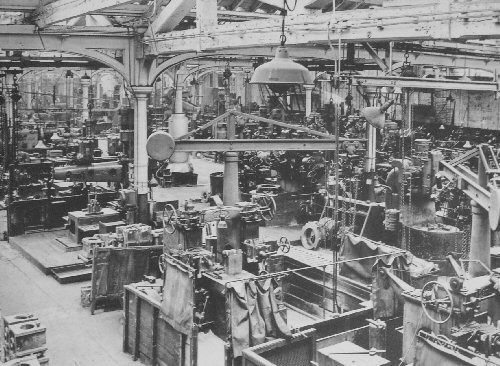Broadcast and print media and the services that support the creation and distribution of information are not dead and Social Media is not going to get indicted for holding the smoking gun.
These powerful, influential, and age-old industries are however, undergoing some of their most radical transformations and metamorphoses in order to adapt to the elusive and rapidly shifting information landscape.
Money is migrating away from traditional media as well as the industries and services that support it – from creation to distribution.
Is Social Media to blame?
Any expert, thought leader, or analyst will claim that this transition was christened in the 90s with the popularization of the Internet aka Web 1.0. And, those who have contributed to its evolution will tell you that “social media” is already starting to wear thin among those in their respective echo chambers. There’s a bell curve of adoption, and most of these discussions are on the far left of it. “The rest of us” will never refer to the socialization of information as “social media.” To them it will simply be regarded as media, conversations, reading, and sharing.
But behind the scenes, history is in the making.
Evolution is evolution – and it’s happened before us and will continue after we’re gone. But, what’s taking place now is much more than change for the sake of change. The socialization of content creation, consumption and participation, is hastening the metamorphosis that transforms everyday people into participants of a powerful and valuable media literate society.
These are the times that experts will look back and officially classify as the Social Revolution, distinctly and separately from the Internet Revolution. These is the genre when big media and its supporting services started to listen and we the people embraced and employed the ability to share our individual and collective voices.
We’re at the dawn of new era in media production, participation, and literacy. You are making history.
Death vs. Evolution
Media, in general, isn’t dead, it’s changing.
Yes print and broadcast advertising is down and online screen time is up. But, dollars aren’t evaporating, they’re migrating and propagating as we continue to invest in the top-down strategies that still work, albeit differently than before, while simultaneously investing in more niche-focused channels to reach and interact with specific groups of people directly.
In the last century, the world has witnessed some of the most incredible and radical advancements in the business of influence and perception management, including, but not limited to:
The printing press.
The wire.
Radio.
TV.
Satellite.
Network infrastructure.
The Web.
The Social Web.
Clouds.
Media is experiencing a textbook Darwinian definition of survival of the fittest as the human race and our patterns for discovering, sharing and producing content matures. It will re-emerge as a more dynamic, nimble, and innovative medium.
Mainstay brands will persevere, but the cost of their education to learn how to compete for the future will be great. Some will borrow models from those who already proved new rules for engagement, others will acquire and integrate the new and rising influencers who lead by example, and a few poor souls will wait until it’s too late only to awaken to a daunting challenge of creating and earning presence and relevance in a new economy.
The Evolution of Influence and the Democratization of Content
Looking back over the last several decades, it’s practically unbelievable to fathom the depth and vastness of our media-dependent societies and the pivotal role influence plays in defining who we are and what we believe. The business of information creation and distribution has driven and defined our global economies. In the last century, the increasingly rapid pace of innovation has globalized, localized, and streamlined the distribution of information, what we thought about, and how we processed, news, trends and current events – and in turn, influenced how our societies evolved in the real world.
In addition to pioneers, big business, lobbyists, and outside interests, the media industry was and still is shaped by journalists, entrepreneurs, enthusiasts, communicators, and zealots who were inspired to share their voice, their insight, and their passions, their way. Through news, editorial, opinion, and field reporting, media, and information, is the common thread that stitches people and societies together.
It’s how we learn.
It inspires us.
It contributes to who we are.
Towards the end of the 1990s, the Web, and its architects, forged the tools that would spark a renaissance of influence and empowerment. These tools would inspire people to build new interconnected platforms for content that would collectively and ultimately ignite a social revolution and usher a new exchange for information that has all the signs and economic potential of a modern day Industrial Revolution.
The Industrial Revolution was a period in the late 18th and early 19th centuries when major changes in agriculture, manufacturing, and transportation had a profound effect on the socioeconomic and cultural conditions in Britain. The changes subsequently spread throughout Europe and North America and eventually the world, a process that continues as industrialization. The onset of the Industrial Revolution marked a major turning point in human society; almost every aspect of daily life was eventually influenced in some way.
The socialization of media and information is our Industrial Revolution.
For the first time in history, media technology and the tools and channels for broadcasting information has been disrupted and open for true global collaboration, while also effectively changing how people interact with each other.
The Social Revolution is the catalyst for the democratization of content and exchange of information, but we’re still experimenting and wrestling with the true impact of this change and how exactly these new models, on ev
ery side of the equation, will ultimately settle.
The sheer volume of social innovation, adoption, new literacy and more importantly, the evolution of human engagement using new tools is revolutionary indeed.
It has changed and continues to shape the landscape for the procurement and exchange of information, education, and ideas as well as impacting and cultivating the dynamics and economics of conversations.
It is influencing the business of how and what media and brands broadcast.
It is redefining how companies respond to the marketplace, including customers, stakeholders, and new influencers.
It is changing how people discover and share and also empowers them to create in addition to consume.
And, it’s introducing the study of peoplenomics or socialized economics and how we not only have access to the Web and a vault full of social tools to publish and share experiences online, we now also have the power and ability to shape perception and evoke emotion and responses that can positively or negatively affect our economy.
If necessity is the mother of invention, then observation, mobility, and reaction are the attributes of, and the spark for, evolution.
The era new media is inviting content producers, consumers, and participants to contribute to and invest in the direction of our economy, one conversation at a time. The democratization of content is humanizing the business of media as well as the companies, brands, services, and the products that define them.
In the era of Socialized Media, relationships are the new currency and participation and collaboration are emerging as the new information exchange.
Connect with me on Twitter, Jaiku, LinkedIn, Tumblr, Pownce, Plaxo, FriendFeed, or Facebook.
Related articles on PR 2.0:
The Art of Conversation – It’s About Listening and Not Marketing
Free ebook: The Essential Guide to Social Media
Free ebook: Customer Service, The Art of Listening and Engagement Through Social MediaThe Art of Conversation – Thoughts and ObservationsThe Social Media Manifesto
Cultural Voyeurism and Social Media
Intel Insiders to Advise Intel on Social Media Strategies








Well said Brian, thanks for laying it out there. Media is very weary of social media these days and we have to make sure everyone understands it’s a win-win for those who progress and adapt. We’re finding PR pros and media both want to learn about and engage in social media practices. At PitchEngine, I’m surprised by the amount of media that share their desire to engage. It’s a very exciting, not threatening time if you really take the time to engage. Thanks again for another incredible post!
Brian, your posts are always thought-provoking.
I did a man-on-the-street interview with a random dude about social media last week. He said this development is as important as the invention of the printing press. He then admitted that he is, at best, a lurker in the SM world. This seems to be the mood of the general public – they understand something significant is going on, but they’re not sure what to make of it yet.
This is indeed a very exciting time to be in communications.
Brian, I agree that a change is coming and it could be great. I work in public affairs and civic engagement as well as social media and it’s clear that a large number of people do not have the resources or know-how to do anything online. Print and broadcast are their only and familiar/friendly means of getting information.
Also, in terms of money, while funds are now going towards the web, print/broadcast media need to do something to encourage recruiting new participants in advertising. It’s not only the money that has shifted, but the audience as well. Follow the audience, follow the medium.
Thank you; extremely well-written. I have found that many, not all, media executives are in denial in regards to SM. In other words, the denial of SM’s role in Integrated Marketing Communications. SM is seen to them as something for teens/tweens, not as a tool to connect with the populace at large. As you said, when they do realize, it will be too late-what is occurring currently in SM will undoubtedly change within six months. The difference with SM is that it is evolutionary-indicating constant education, adaptation. This does not bode well for media executives that are happy with the old format of media.
brian,
good post man, and a nice thought-provoking way to start the wk. I do think we live now not in the industrial age, nor in the information age, but in the communication age.
Social media are the socialization of information media, and enable communication to become a means of production as well as distribution.
Insofar as we adopt, coopt, and assimilate mass media forms — in narration, presentation, image making, messaging, and so on — we do however run the risk that we import broadcast culture and thus undermine the authenticity of social, eg. local and personal, cultures.
You’re right on about the value of influence and communication to the distribution of content in social media — but I sincerely hope we dont end up recreating mass media online.
As the volume of conversation explodes online there will again be a battle between value in the power curve and value in the tail… Let’s hope we can keep the popularity fest that drives mass media from corrupting the integrity of social media!
cheers,
adrian
Bravo Brian! We are indeed in the throes of a revolution, and what will make this one the most significant is; that in the flattened world, or a technology leveled playing field, it won’t just be one or two countries that go through this at the same time. It will truly be a global revolution that affects all countries and cultures.
It also places a greater and greater value on content. We still need the great storytellers (no matter what format their craft) to continue to feed the growing consumption frenzy. Quality stories will still get told and retold, while the sludge that gets produced will sink into the morass of the background noise. Or in a democratic process be voted down to the dregs. It is a great time to be part of the thrill and rush of a culture in flux! Vive la revolution!
-Chris L.
Sterling Cross Communications
http://www.sterlingcrossgroup.com
http://abovethebuzz.wordpress.com
Nicely couched Brian. I think the evolution is the fascinating component for this revolution. Already, I see the rumblings for increased granularity in social media that falls somewhere between pure personal networking and information sharing, democratic journalism ala the digg arena and the traditional mediascape. Of course, monetizing this new media will be the only thing traditional media will be interested in and indeed may prove their downfall.
I think it is a bit early to compare the social media revolution to the industrial revolution, or any revolution. Simply put, anytime you are living in a way different from others, you will feel like there is a ton of change occurring. While I wish the social media revolution was comparable to the industrial revolution, it is still such a small minority of people around the world that utilize these tools that it is better compared to the Renaissance. Few partakers, re-evaluation of reality, and deep social implications are just a few parallels. I don’t think it will impact business as much as it will impact life in general.
The industrial revolution was about machinery, and the obsession with hardware continued through the conception of the microprocessor. Now, with social media, it isn’t about the stuff we are using. Instead, it is about how we are use these machines.
Once hardware does enough, people stop caring about the physicality of it, and start caring more about the feel of it. Cars are a great example, no one needs a 2000 hp car, but everyone enjoys a certain feel to driving. Computers are finally becoming fast enough for users to sit back and enjoy the ride.
The biggest bottleneck in this revolution is still hardware based, the networks. Once every internet user is connected at Gb+ speeds, there will be widespread user adoption and the revolution will truly begin to take hold.
Brian, you are indeed a thought leader. Hopefully I can be as persuasive within my community of advertising agency new business.
Fabulous post, Brian. I am currently forwarding this to colleagues and making it “required reading.” You’ve synthesized so much information, and have explained the (r)evolution very well!
Where are the post images? I get missed link for everyone.